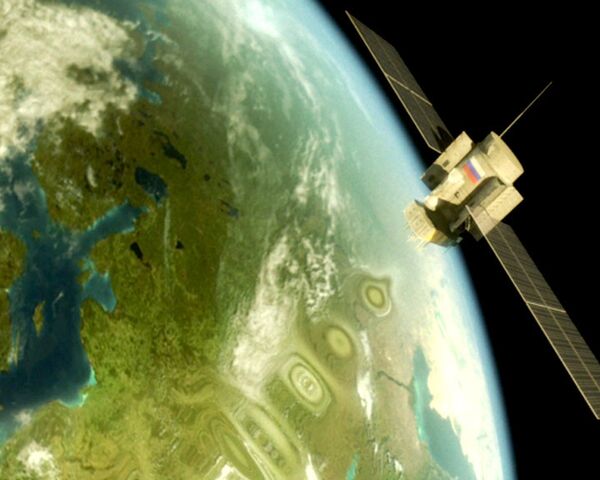Russia will start operating its new Glonass-K navigation satellite, which is now undergoing in-orbit tests, by the end of the year, the head of the Russian Space Systems construction bureau has said.
The Russian Space Forces successfully launched the satellite from the Plesetsk space center in northern Russia on February 26. This was the first launch carried out from Plesetsk; previously, Glonass satellites had been launched from the Baikonur space center in Kazakhstan.
"We are planning to start operating [the Glonass-K satellite] this year," Yury Urlichich told the Russia24 TV channel, noting that the new satellite's operation period will be three years longer than that of its predecessors.
The Glonass satellite network is Russia's answer to the U.S. Global Positioning System, or GPS, and is designed for both military and civilian uses. Both systems allow users to determine their positions to within a few meters.
The Glonass-K, which has a service life of 10 years, will beam five navigation signals - four in the special L1 and L2 bands and one for civilian applications in the L3 band.
Russia currently has 22 fully-operational Glonass satellites in orbit. The complete Glonass grouping must have 24 operational and 2-3 reserve satellites for the Glonass network to operate with global coverage.
Another three Glonass-M satellites are planned to be launched in the third quarter of 2011 to complete the grouping, Urlichich said.
The previous launch under the Glonass project in December 2010, supposed to conclude the forming of the satellite grouping, was unsuccessful as the rocket veered off course and sunk in the Pacific Ocean. The loss cost Russia 2.5 billion rubles ($86 million) in direct damages.
MOSCOW, March 5 (RIA Novosti)


